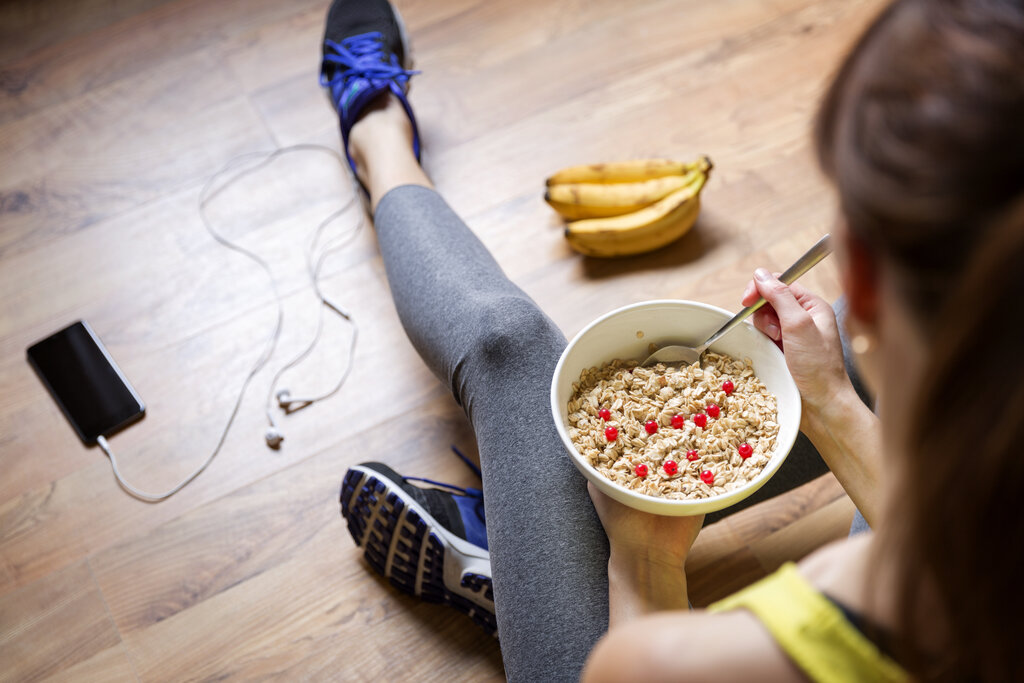
Welcome to the D1 Training Henderson blog, where we explore the latest scientific findings in the realm of fitness and performance. In this article, we delve into the world of post-workout nutrition and the significance of recovery for optimal fitness gains. So grab a seat, and let's uncover the science behind post-workout meals.
The Importance of Post-Workout Nutrition:
After an intense workout, your body needs proper nutrition to replenish energy stores, repair damaged tissues, and promote muscle growth. The window of opportunity for optimal nutrient absorption is known as the "post-workout window." During this time, your body is primed to absorb nutrients efficiently, making it crucial to consume the right combination of macronutrients and micronutrients.
Protein Power:
Protein plays a vital role in muscle repair and growth. Consuming high-quality protein after a workout stimulates muscle protein synthesis, aiding in the recovery process. Examples of sources for lean protein sources like chicken, fish, eggs, or plant-based alternatives such as tofu or legumes. Aim for approximately 20-30 grams of protein post-workout to maximize muscle protein synthesis.
Carbohydrates for Glycogen Replenishment:
Intense workouts deplete glycogen stores, the primary energy source for muscles. Consuming carbohydrates after a workout replenishes glycogen levels, allowing for optimal recovery and future performance. Choose complex carbohydrates like whole grains, fruits, or vegetables to provide sustained energy release. Many athletes benefit from a carbohydrate intake of 0.5-0.7 grams per pound of body weight within the post-workout window.
Healthy Fats:
While carbohydrates and proteins take center stage post-workout, don't forget the importance of healthy fats. Omega-3 fatty acids, found in foods like fatty fish, walnuts, and chia seeds, have anti-inflammatory properties that aid in reducing exercise-induced muscle damage. Including a moderate amount of healthy fats in your post-workout meal can support overall recovery and promote joint health for many athletes.
Micronutrients for Recovery:
In addition to macronutrients, micronutrients play a crucial role in recovery. Vitamins such as vitamin C, E, and B-complex, along with minerals like magnesium and zinc, assist in repairing muscle damage and reducing oxidative stress. Consider ensuring your post-workout meal contains a variety of fruits, vegetables, and whole foods to provide a wide spectrum of micronutrients.
Timing Is Key:
While it's essential to consume the right nutrients, timing your post-workout meal is equally important. The post-workout window typically lasts up to two hours, during which your body is highly receptive to nutrient absorption. Consider a balanced meal within this timeframe to optimize recovery.
Immediate Post-Workout Snack:
For convenience or when a full meal isn't feasible immediately after a workout, consider a quick and easily digestible snack. Protein shakes, Greek yogurt with fruits, or a small handful of nuts can provide a temporary boost until you can have a complete meal.
Whole Food Meal:
Within the post-workout window, aim for a balanced meal that includes lean protein, complex carbohydrates, and healthy fats. For example, a grilled chicken breast with quinoa and a side of steamed vegetables provides an ideal combination of macronutrients and micronutrients to aid recovery.
Beyond Nutrition: The Importance of Recovery:
While post-workout nutrition is essential, recovery encompasses more than just what you consume. Adequate rest and proper techniques can optimize your body's ability to adapt and grow stronger.
Sleep and Rest:
During sleep, your body undergoes critical recovery processes, such as hormone regulation, protein synthesis, and muscle repair. Aim for 7 to 9 hours of quality sleep each night to support optimal recovery and muscle growth. Additionally, incorporating rest days into your training schedule allows your body time to repair and rebuild, reducing the risk of overtraining and injury.
Hydration:
Proper hydration is often overlooked but is vital for effective recovery. Water plays a crucial role in nutrient absorption, waste removal, and temperature regulation. During and after your workout, replenish fluids by drinking water or electrolyte-rich beverages to restore hydration levels and support optimal recovery.
Active Recovery:
Engaging in light physical activity on your rest days can enhance recovery. Activities such as walking, yoga, or gentle stretching increase blood flow, promote nutrient delivery to muscles, and help reduce muscle soreness. Incorporate active recovery sessions into your routine to maintain mobility and promote overall well-being.
Foam Rolling and Stretching:
Using a foam roller or engaging in targeted stretching exercises can alleviate muscle tension, improve flexibility, and promote faster recovery. By targeting specific muscle groups, you can enhance blood circulation and reduce post-workout stiffness or tightness.
Listen to Your Body:
Finally, it is crucial to listen to your body's signals and adjust your training and recovery accordingly. If you're experiencing excessive fatigue, persistent muscle soreness, or a decline in performance, it may indicate that you need more recovery time. Pay attention to these signs and modify your workout intensity or duration to prevent burnout and promote long-term progress.
The science behind post-workout meals and recovery highlights the importance of fueling your body with the right nutrients and allowing adequate time for rest and repair. Remember, nutrition is not a one-size-fits-all approach, and individual needs may vary based on factors like body composition, fitness goals, and dietary preferences. Consult with a registered dietitian or sports nutritionist to develop a personalized post-workout nutrition plan that suits your specific needs.
At D1 Training Henderson, we believe in the power of science-backed training methodologies and proper recovery strategies to help you achieve your fitness goals. By prioritizing post-workout nutrition and recovery techniques, you can optimize your performance, prevent injuries, and progress toward becoming a stronger, healthier version of yourself.
So, the next time you hit the gym, plan your post-workout meal, prioritize rest and recovery, and embrace the science behind achieving your fitness aspirations. Your body will thank you, and you'll be well on your way to reaching new heights in your fitness journey.
